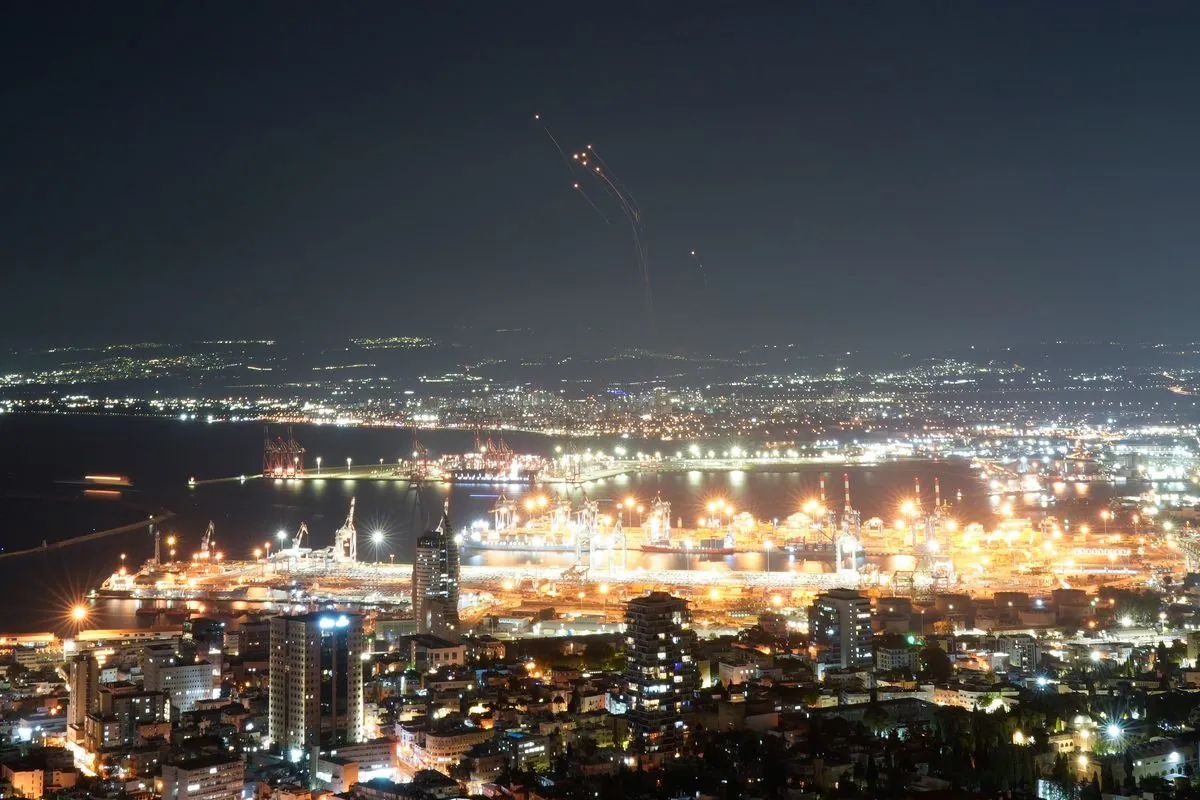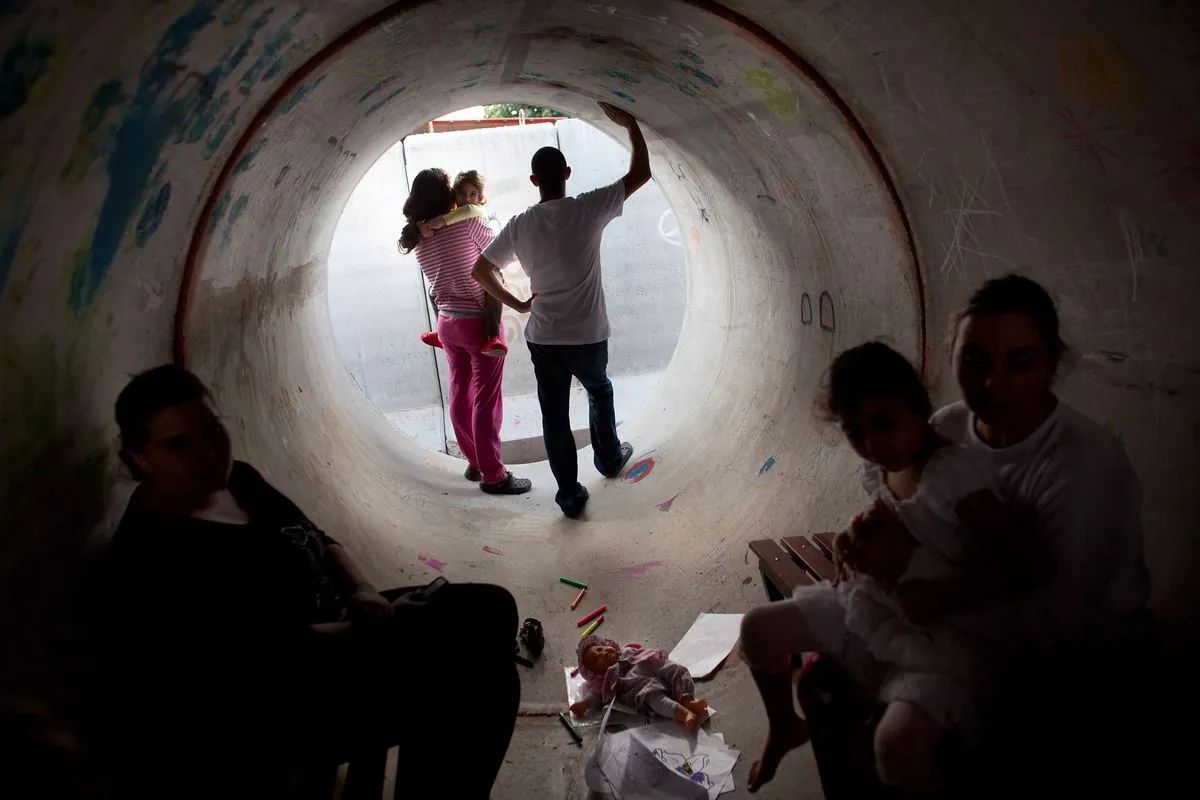Tel Aviv Targeted: Hezbollah's Long-Range Missile Escalates Tensions in Israel
Hezbollah fires long-range missile at Tel Aviv, intensifying fears in northern Israel. Residents brace for potential escalation as military restrictions expand and local authorities prepare for prolonged conflict.

In a significant escalation of tensions, Hezbollah launched a long-range missile towards Tel Aviv, marking the deepest strike yet by the militant group. This attack has heightened concerns among Israelis about the potential for a conflict without boundaries.
The missile was intercepted by Israel's air defense systems, as have been the majority of projectiles fired from Lebanon in recent days. However, the incident has left residents across northern Israel grappling with the daily reality of air raid sirens and rushed evacuations to safe rooms.
As Israel approaches the one-year mark since the October 7 attack, which occurred approximately 11 months ago, officials are warning of challenging times ahead. The nation finds itself in a state of anxious anticipation, with many bracing for the worst.
Ran Zohar, a 24-year-old Tel Aviv resident, expressed a sentiment shared by many: "We've been waiting for it. We don't have anything else to do."

The Israeli military has expanded its restrictions in response to the escalating situation. These measures now encompass the Haifa Bay area, the Israeli-occupied Golan Heights, parts of the Galilee, and regions extending up to 40 miles south of the Lebanese border. Schools have been closed, outdoor gatherings limited, and only workplaces with adequate shelters remain operational.
Hezbollah, founded in 1985 during the Lebanese Civil War, has showcased only a fraction of its sophisticated weapons arsenal, which it has been building for years. The group's military wing is estimated to have between 25,000 to 50,000 fighters, and its arsenal is believed to include over 100,000 rockets and missiles.
In response to the attacks, Israel has conducted heavy strikes across Lebanon, resulting in significant casualties. The Israeli Defense Forces (IDF) reported hitting 1,500 "terrorist infrastructure targets" and has instructed troops to prepare for a potential ground invasion.
Local authorities in northern Israel are preparing for an extended period of conflict. David Even Tzur, mayor of Kiryat Yam and head of the Haifa Bay Municipalities Association, stated, "We need to give them a onetime hard blow so it can be calm again." Emergency teams have readied safe rooms, stocked supplies, and placed psychologists on call.
"With God's help we will be able to normally celebrate Rosh Hashanah"
The situation has evoked memories of past conflicts, including the 2006 Lebanon War. Alise Zvinatzki, a 23-year-old resident of Kiryat Bialik, shared her experience: "I think that there needs to be a war to move Hezbollah away from the border so the north won't be like Gaza."
While a clear majority of Israelis support the military actions, some voices of dissent exist. Maysoon, a Palestinian citizen of Israel, expressed fear of speaking out against the war, highlighting the complex social dynamics within the country.
As the conflict continues to evolve, the future remains uncertain. The coming days and weeks will be crucial in determining whether the situation escalates further or if diplomatic efforts can bring about a de-escalation.


































